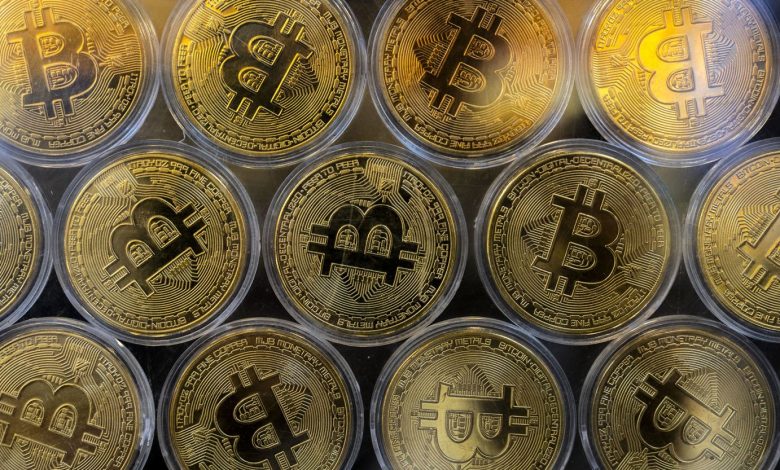Bitcoin: The Digital Revolution That Redefined Money

Introduction: A Radical Idea Takes Root
When Bitcoin first emerged in 2009, it seemed like the domain of fringe technologists and cryptography enthusiasts. Satoshi Nakamoto’s vision was deceptively simple yet revolutionary: a peer-to-peer electronic cash system that functioned without banks or central authorities. In a world reeling from financial mismanagement and institutional distrust, Bitcoin offered a novel proposition—digital money underpinned by mathematics rather than politics
Fast-forward to today, and Bitcoin is no longer an obscure experiment. It has sparked a global debate, minted millionaires, inspired fierce regulatory battles, and laid the foundation for an entire cryptocurrency ecosystem. But to understand Bitcoin’s enduring appeal, one must look beyond the price charts and headlines
How Bitcoin Works: The Mechanics Behind the Myth
At its core, Bitcoin is powered by blockchain technology. Imagine a public ledger, shared across thousands of computers worldwide, that records every Bitcoin transaction ever made. This ledger is updated in blocks, each cryptographically linked to the one before it, creating an immutable chain of trust
Mining: The Engine of the Network
Unlike traditional currencies printed by governments, new Bitcoins are “mined.” Miners deploy powerful computers to solve complex mathematical puzzles. This work secures the network and validates transactions. As a reward, miners receive newly minted Bitcoins plus transaction fees
Key elements of mining include:
-
Proof of Work: A consensus mechanism requiring miners to expend real computational effort, which deters fraud and double-spending
-
Halving Events: Every four years, the reward for mining new blocks is halved, creating artificial scarcity and mimicking precious metals like gold
-
Finite Supply: Only 21 million Bitcoins will ever exist, ensuring built-in scarcity
The Allure of Bitcoin: Scarcity Meets Sovereignty
Bitcoin’s appeal lies not just in its digital nature but in what it symbolizes—financial autonomy in an increasingly centralized world. For many, Bitcoin is:
-
Digital Gold: A hedge against inflation, political turmoil, and currency devaluation
-
Borderless Money: Anyone with an internet connection can send or receive Bitcoin globally, with no intermediaries
-
Censorship-Resistant: Transactions cannot be blocked or reversed by any single authority
In countries plagued by hyperinflation or authoritarian capital controls, Bitcoin has provided a lifeline, enabling individuals to preserve and move wealth beyond the reach of failing banks or repressive governments
Volatility: The Price of Freedom
Of course, Bitcoin is not without its challenges. Its price swings are legendary, capable of turning modest investors into overnight millionaires—or paupers. This volatility is fueled by several factors:
-
Speculation: Many buy Bitcoin hoping to profit from rapid price appreciation
-
Market Sentiment: News, social media trends, and influential endorsements can send prices soaring or tumbling
-
Regulatory Shifts: Announcements from major economies about crypto regulation have an outsized impact on market confidence
For seasoned traders, these swings present lucrative opportunities. For the cautious investor, they underscore the need for prudent risk management
The Regulatory Crossroads
As Bitcoin’s influence grows, so does government scrutiny. Policymakers worldwide wrestle with questions of taxation, anti-money laundering compliance, and consumer protection. Responses vary dramatically:
-
Embrace: Countries like El Salvador have adopted Bitcoin as legal tender, hoping to attract innovation and investment
-
Regulate: The European Union, United States, and others push for robust oversight to integrate Bitcoin into the broader financial system
-
Ban: Some nations, citing capital flight or energy concerns, have outright banned mining or crypto transactions
How this regulatory landscape evolves will shape Bitcoin’s future. Thoughtful, balanced policy could unlock mainstream adoption. Heavy-handed bans may drive activity underground or push innovation elsewhere
The Environmental Debate
No discussion of Bitcoin is complete without addressing its carbon footprint. Bitcoin mining consumes significant energy—often compared to the electricity usage of small nations. Critics argue that this undermines sustainability goals
In response, some miners are relocating to regions with surplus renewable energy. Innovations like the Lightning Network aim to make transactions faster and more energy-efficient. Still, the tension between security, decentralization, and sustainability remains a thorny issue
Bitcoin’s Broader Legacy: The Catalyst of a Crypto Revolution
While Bitcoin itself was the first, it ignited a wave of innovation that birthed thousands of cryptocurrencies and blockchain-based projects. Decentralized finance (DeFi), non-fungible tokens (NFTs), and smart contracts all trace their lineage back to Bitcoin’s open-source DNA
This broader crypto ecosystem challenges traditional finance in profound ways. It experiments with new forms of governance, digital ownership, and borderless exchange, forcing regulators, bankers, and technologists alike to rethink the fundamentals of money and trust
Practical Guidance for New Entrants
For those intrigued by Bitcoin’s promise, a few principles stand out:
-
Do Your Homework: Understand how Bitcoin works, the risks involved, and the security measures needed
-
Choose Reliable Platforms: Use reputable exchanges with strong security records and clear fee structures
-
Secure Your Assets: Consider hardware wallets or cold storage for significant holdings to protect against hacks
-
Invest Responsibly: Never invest more than you can afford to lose and diversify across different asset classes
Conclusion: The Road Ahead
Bitcoin stands as both an investment asset and a philosophical statement. For some, it is digital gold—a hedge against the excesses of fiat money. For others, it is a tool of liberation, giving the unbanked a voice in the global economy. To critics, it remains a speculative bubble, a magnet for illicit activity, and an environmental burden
Yet Bitcoin persists, resilient against predictions of its demise. Its very existence forces a global conversation about who controls money, who should, and how technology can upend centuries-old financial systems
Whether Bitcoin becomes a universally accepted currency, an elite store of value, or simply a milestone on the road to a more decentralized world, one truth endures: Bitcoin changed the way we think about money. In an age defined by digital transformation, that alone ensures its place in financial history



